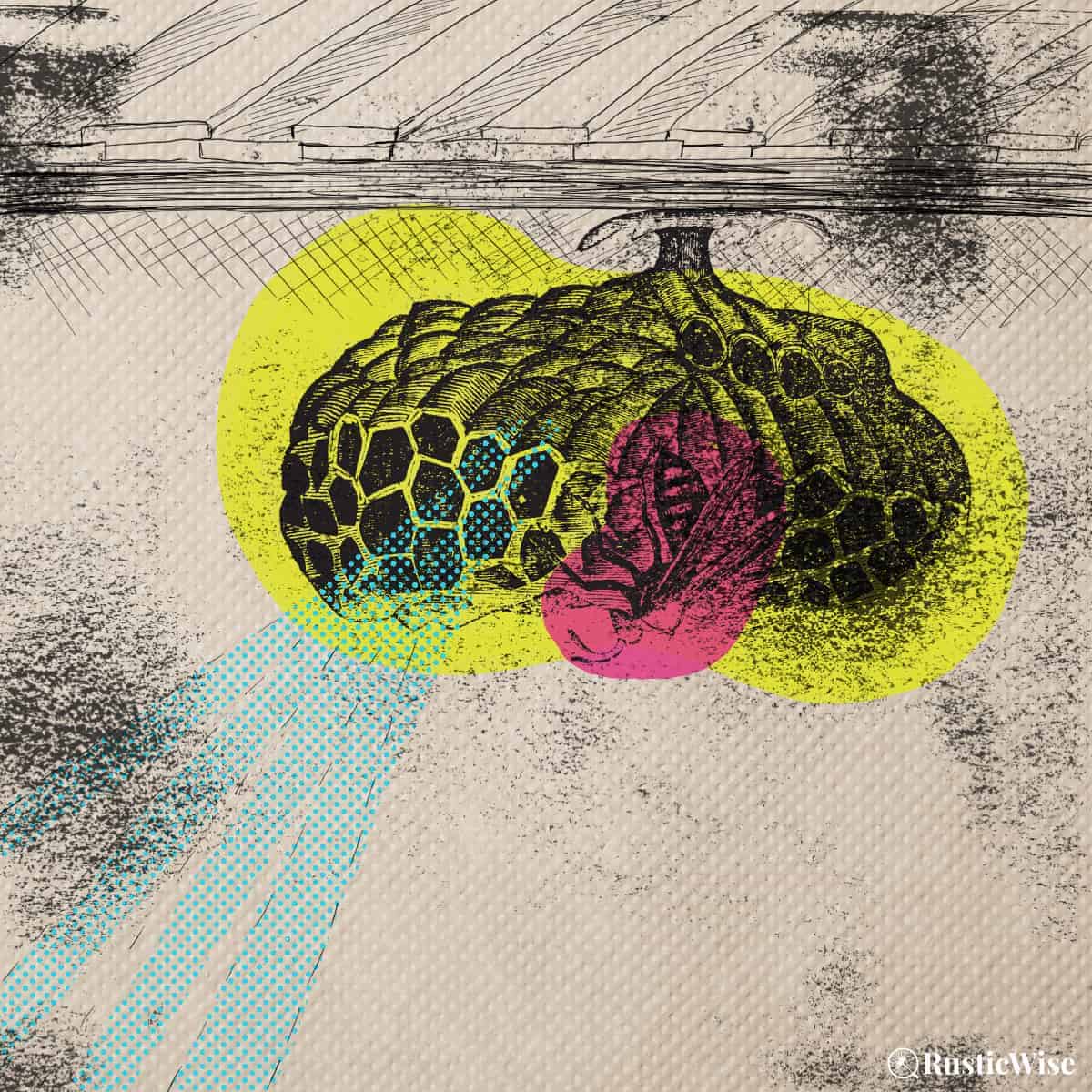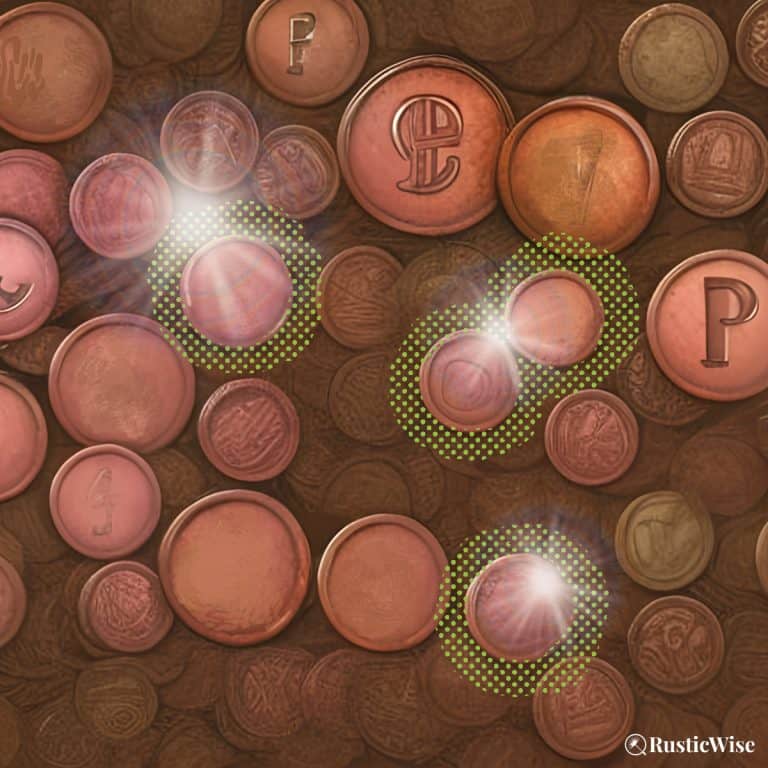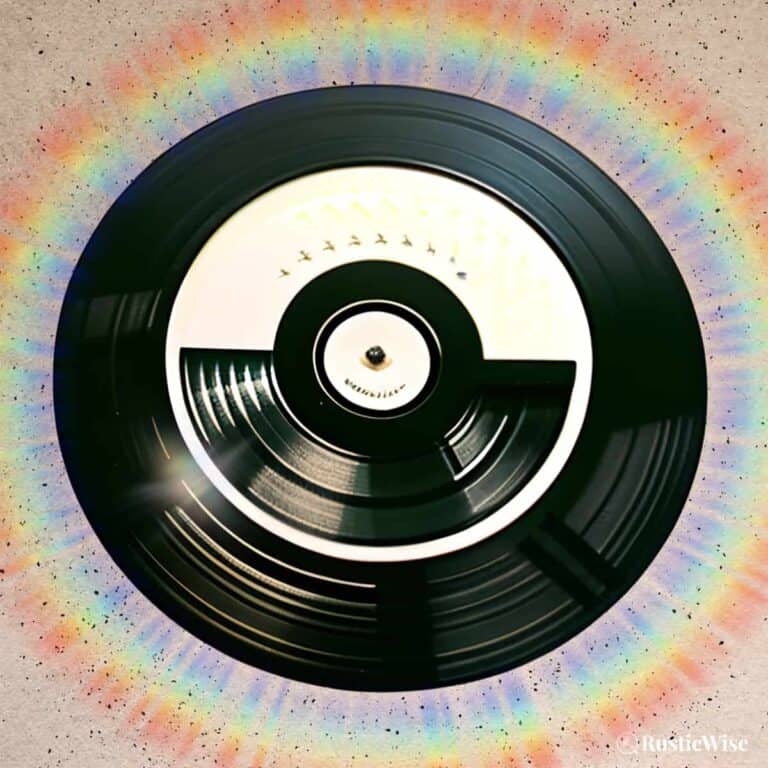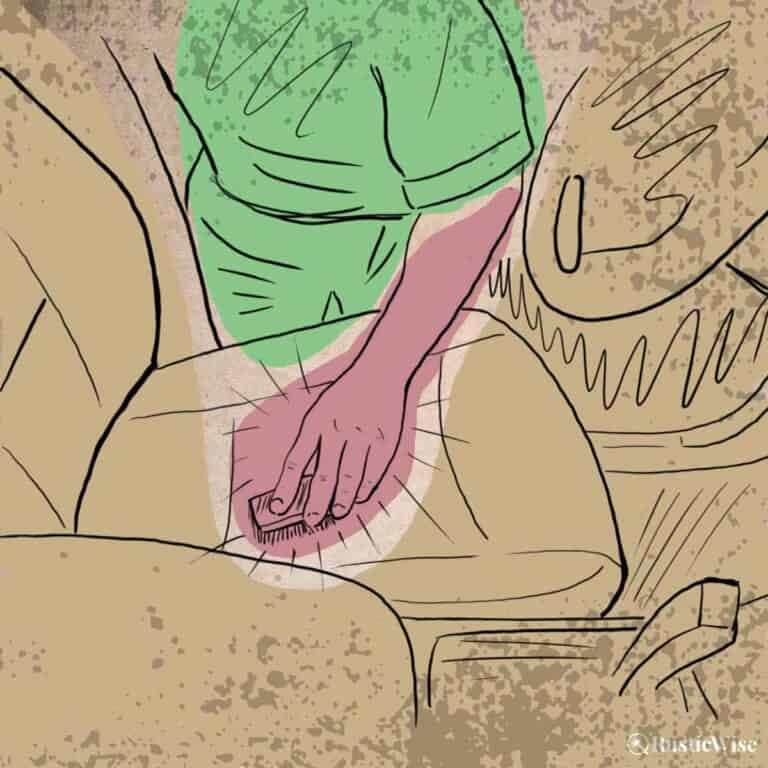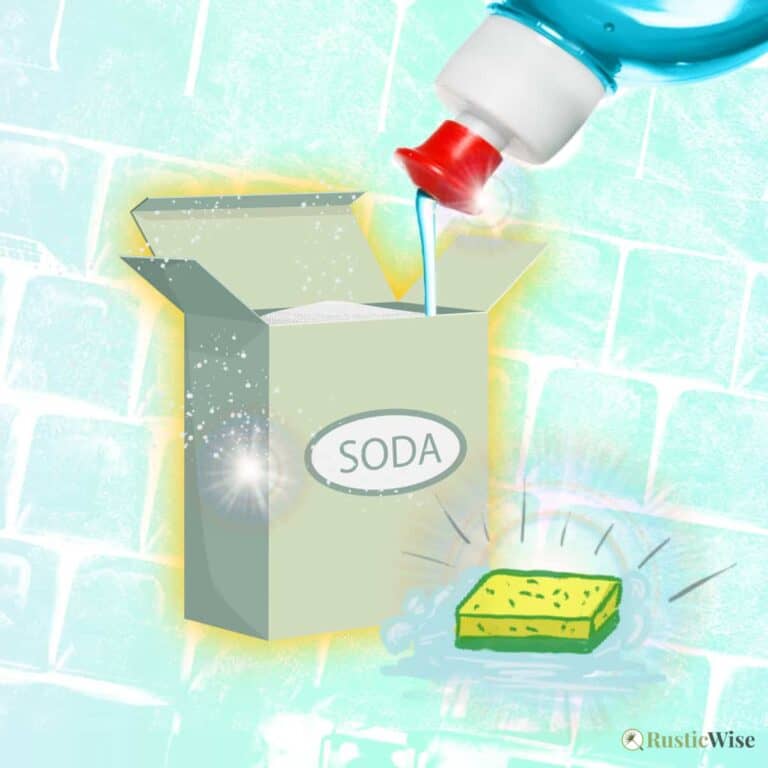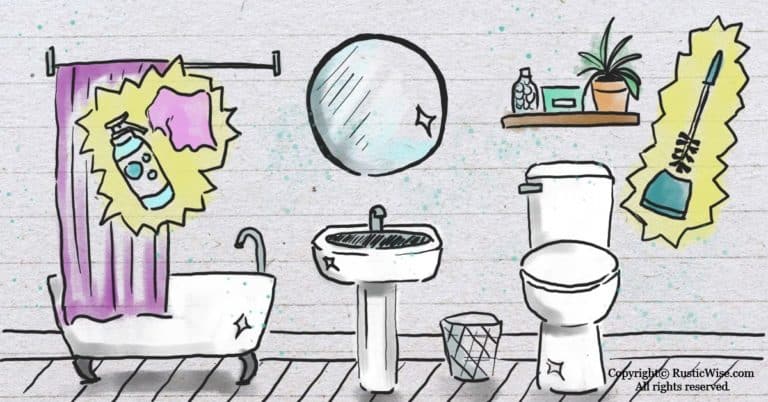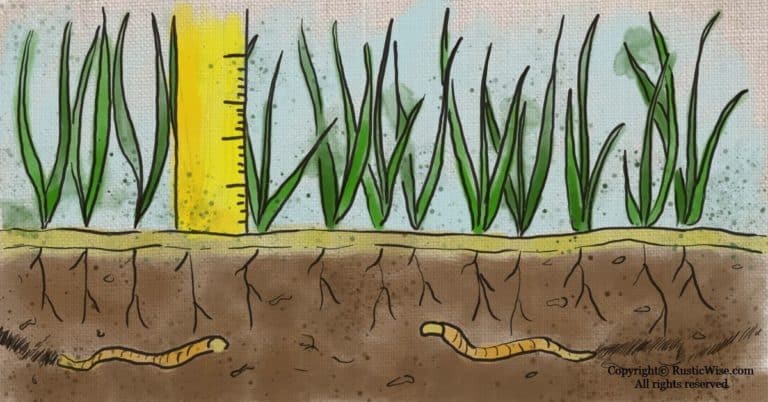Does Soapy Water Kill Wasps Effectively?
Wasps can be a real nuisance, especially during the summer months, when they are most active. If you’ve ever had a wasp infestation in your home or garden, you’ll know just how frustrating and even dangerous it can be. But is there a simple solution to getting rid of wasps without resorting to harmful chemicals or expensive pest control services?
You’ve likely heard of some home remedies to get rid of wasps and hornets. One of the most common DIY solutions is to use soap and water. Does soapy water kill wasps effectively? Surprisingly, yes, soap works by coating the insect’s body and blocking the spiracles it uses to breathe. This leads it to suffocate quickly. You can also use soap and water to pour into ground nests.
Let’s take a closer look at the science behind this popular remedy and how to use this safely and effectively. If you’re tired of being stung and want to take control of your wasp problem, read on to discover the truth about soapy water and wasps.
A closer look at bees, hornets, and wasps
With many buzzing bugs flying about, it’s hard to distinguish between three common types of stinging insects: bees, wasps, and hornets. While all three of these insects can be found in the same habitats, it’s important to know the differences between them in order to stay safe and effectively target them.
Bees, hornets, and wasps are all members of the Hymenoptera order of insects, but they have distinct differences.
Bees are known for their fuzzy bodies and their role in pollinating plants. A beneficial insect, most bees are not very aggressive and sting only when threatened. When a honeybee stings someone, it dies, unlike hornets and wasps, which can sting repeatedly.
Identifying common wasps
Believe it or not, wasps too, are a beneficial insect which eat other harmful insects and play a vital role in pollination.
The most common wasps include:
- Solitary wasp: Fairly gentle compared to their more aggressive counterparts, the yellow jackets, solitary wasps mostly stick around vegetation and flowers in the garden. They make nests in mud and dirt. Look for holes in the dirt alongside small piles of dirt—a telltale sigh of a solitary wasp’s nest.¹
- Paper wasp: Also known as the umbrella wasp, as their papery nests resemble parachutes which are often affixed to fences, branches, and eavestroughs. They are characterized by long legs and bodies, and small waists. Like the solitary wasp, paper wasps are not too aggressive and like to stick around flowers and foliage.¹
- Yellowjackets: Brightly colored in black and yellow (or black and white), yellowjackets are known for their speed and aggression. They are prolific stingers which can inflict damage on homeowners who aren’t careful. They live in large colonies and will defend their territory. While we often find nests in the ground, they build some on structures. The nests have a papery exterior called an envelope. ¹
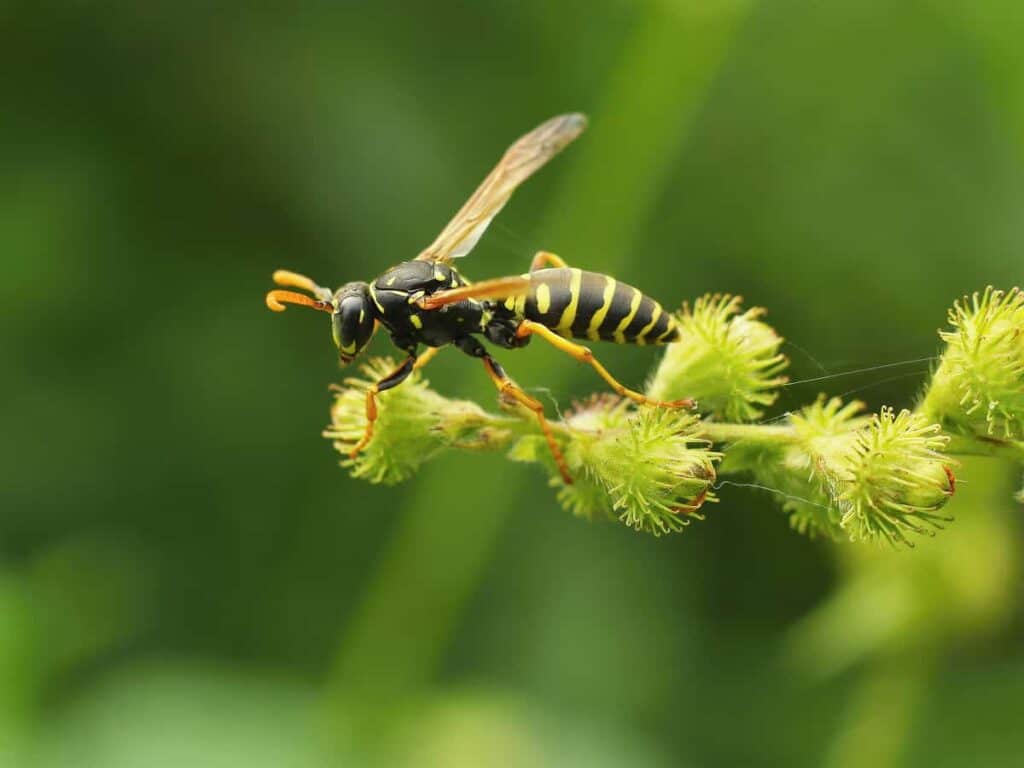
What’s the difference between wasps and hornets?
Both wasps and hornets are hairless (unlike fuzzy bees).
Wasps are typically smaller and slender, with a narrow waist. They have black and yellow rings, typically.²
Hornets are larger and more aggressive than regular wasps. They have black and white rings.
The dangers of wasps and yellowjackets
These harmful stingers are a threat to all—particularly those with allergic reactions.
It’s estimated that severe reactions from wasp, hornet, and yellow jacket stings result in about 225,000 emergency room visits in the U.S. and roughly 100 deaths each year.³
Safety tips on handling wasps
Taking care of a wasp nest is not for the faint of heart (or for the slow-footed).
As you’re well aware, these pests can sting!
Here are a few tips on handling wasps and hornets safely:
- Cover up: Wear gloves, a long-sleeved shirt, and jeans to protect yourself. Better yet, wear a wasp protective suit if you have one available.
- Clear a path: Get ready to run! After applying a spray, you’ll want to clear a path to scramble to safety. Move aside any large obstacles or tripping hazards such as garden hoses, furniture, or ladders.
- Spray in the evening: Wasps are active during the daytime hours and return to their nest each night. You can better catch them at home during the evening when they are less active.
- Use a hose-end sprayer: Keep your distance by applying any sprays with a hose-end sprayer rather than a regular spray bottle.
Does soapy water kill wasps? Here’s how it works
If you’re looking for a natural and effective way to get rid of wasps, you may wonder if soapy water is the answer.
Soapy water can indeed kill wasps, and here’s how it works. When you mix dish soap with water, it creates a soapy solution that can penetrate the wasp’s exoskeleton, causing it to suffocate and die.
Like other insects, wasps breathe through their bodies, in particular, their abdomen. A series of openings along the body called spiracles allows the insect to take in oxygen. When a soap spray is applied, it blocks the spiracles which makes it difficult to breathe.
The soap also breaks down the surface tension of the water, making it easier to spread and stick to the wasp’s wings, making it challenging to fly away.
Soapy water can be an effective and natural way to get rid of wasps without using more harmful chemicals or pesticides.
However, it’s important to use caution and wear protective clothing when dealing with wasps, as they can be aggressive and dangerous.
What kinds of soap can you use?
You can use any type of liquid dish detergent such as Dawn dish soap, or even laundry detergent to kill wasps and yellow jackets.
However, note that spraying commercial detergent solutions outdoors can harm plants or grass.
Tip: Even “mild” soaps like handwashing dish detergents contain chemicals, colorants, and fragrances which can affect plant life or other crops. Take care to avoid getting liquid dish soap onto plants and grass.
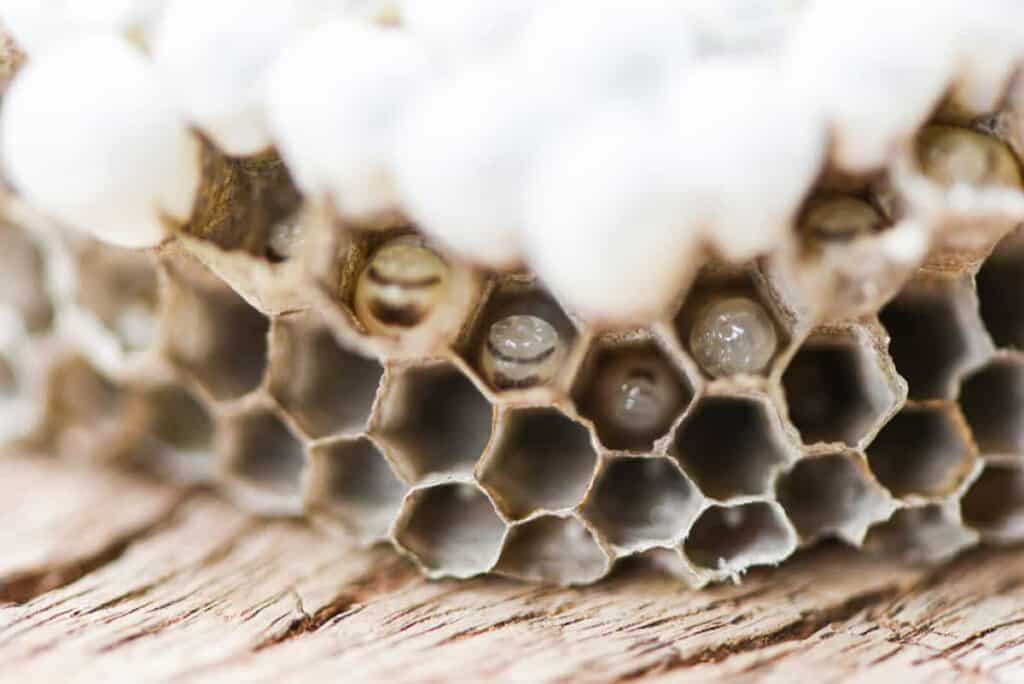
Credit: Vector State
How to use soap to kill wasps
There are two main ways to use dish soap as a wasp killer:
- Pouring hot soapy water down a wasps’ nest in the ground.
- Applying a soapy spray using a hose.
Pouring hot soapy water into nests
If you have found the nesting site on the ground, you can simply do the following:
- Prepare the soap water. Combine a few drops of hot water and dish soap in a large bucket.
- Put on your protective gear!
- Pour the soapy solution into the opening of the wasp nest. This targets the entire nest and colony.
- Let it sit for several hours and come back to check for remaining wasps. Repeat as needed.
DIY wasp spray with dish soap and water
Want to get rid of wasps with soapy water? Grab a few supplies and let’s get started!
Supplies you’ll need:
- Hose-end spray bottle
- 2 to 4 tablespoons liquid dish soap
- 2 cups warm or hot water
- Garden hose
Safety note: Using a spray bottle that affixes to a hose is safer than using a regular spray bottle. It allows you to spray from a greater distance and also provides a powerful stream of water.
- Add 2 to 4 tablespoons of liquid dish detergent in a spray bottle. Top up with 2 cups of warm or hot water.
- Put on protective gear.
- Attach hose-end spray bottle filled with soap water to your garden hose. Wait until the evening to spray directly on the wasps and/or nests.
When is the best time of year to control wasps?
According to the University of Minnesota Extension, the ideal time of year to target wasps is in June. By this time, the queen will have established her colony, but the colony is still small and manageable.⁴
Wait until dusk falls to begin your spraying. Wasps are less active at night.
Plus, nighttime temperatures are cooler. At temperatures below 50 degrees Fahrenheit (10 degrees Celsius), wasps have more difficulty flying.⁴
But because the nests are smaller, you’ll have to be on the lookout for potential nesting places around your yard and backyard structures.
Other ways to deter wasps
While you can use soapy water to kill stinging pests, it’s not a cure-all. The best way to rid your yard of stingers is through a combination of preventative measures along with targeted pest solutions.
Wasps get particularly scrappy in the late summer and early fall when yellowjackets are actively scavenging for food.
Here are a few preventative measures you can take to avoid getting wasp stings:
- Put a lid on it: Keep attractants to a minimum by keeping a tight lid on garbage cans, and promptly throwing away garbage in sealed containers.
- Safe outdoor dining: If dining al fresco, only bring out food when guests are going to eat. Keep covers and lids on serving plates and bowls, as well as drinks. Check drinks for any hidden wasps before consuming.
Another non-toxic way to deal with wasps is through using various plant-based essential oils. Peppermint oil is a good wasp and hornet deterrent as they don’t like the smell.
And of course, if your home remedies cannot kill the wasps, there are many commercial solutions available. A few less toxic options include wasp traps, wasp nest decoys, and enzyme solutions.
Don’t forget to call an exterminator for severe wasp and hornet infestations.
Related questions
How long does it take for a soap spray to work on wasps?
A soap and water solution (if targeted properly and covers the wasp’s body) will work to kill a single wasp fairly quickly—almost instantly.
If you’re using a bucket of hot, soapy water to pour into a nest, come back to check on it in several hours.
Does soapy water kill plants?
Yes, soapy water can potentially kill plants as it strips away the waxy protective coating on leaves and stems. This leaves the plant vulnerable to disease and sun exposure. Many plants develop leaf burn as a result of strong soapy solutions.
It’s important to dilute any soap used and avoid using it on plants that are under stress.
Does soap spray kill ants?
Yes, a soapy solution works to coat the ant’s body, which eventually suffocates it. The soap also serves to eliminate the ant’s scent, which makes it harder to for other members of the colony to follow the trails.
Does soap water kill caterpillars?
Unfortunately, a soapy spray is not very effective on caterpillars and beetles. It works better on smaller soft-bodied insects such as aphids, mites, thrips, and whiteflies.
Would you like more timeless tips via email?
Fun tips to help you live an independent, self-sustaining lifestyle. Opt-out at any time.


References
- Beyond Pesticides, Wasp and Yellowjacket Control, https://www.beyondpesticides.org/resources/managesafe/choose-a-pest?pestid=23. Accessed March 2023.
- The Manitoba Housing and Renewal Corporation, Bees, Wasps and Hornets, https://www.gov.mb.ca/housing/pubs/pests/bees.pdf. Accessed March 2023.
- Entomology at the University of Kentucky, Controlling Wasps, Hornets, and Yellowjackets, https://entomology.ca.uky.edu/ef620. Accessed March 2023.
- University of Minnesota Extension, Wasp and bee control, http://cues.cfans.umn.edu/old/em/pdfs/Wasp%20and%20bee%20control.pdf. Accessed March 2023.

Author: Josh Tesolin
Josh is co-founder of RusticWise. When he’s not tinkering in the garden, or fixing something around the house, you can find him working on a vast array of random side projects.

